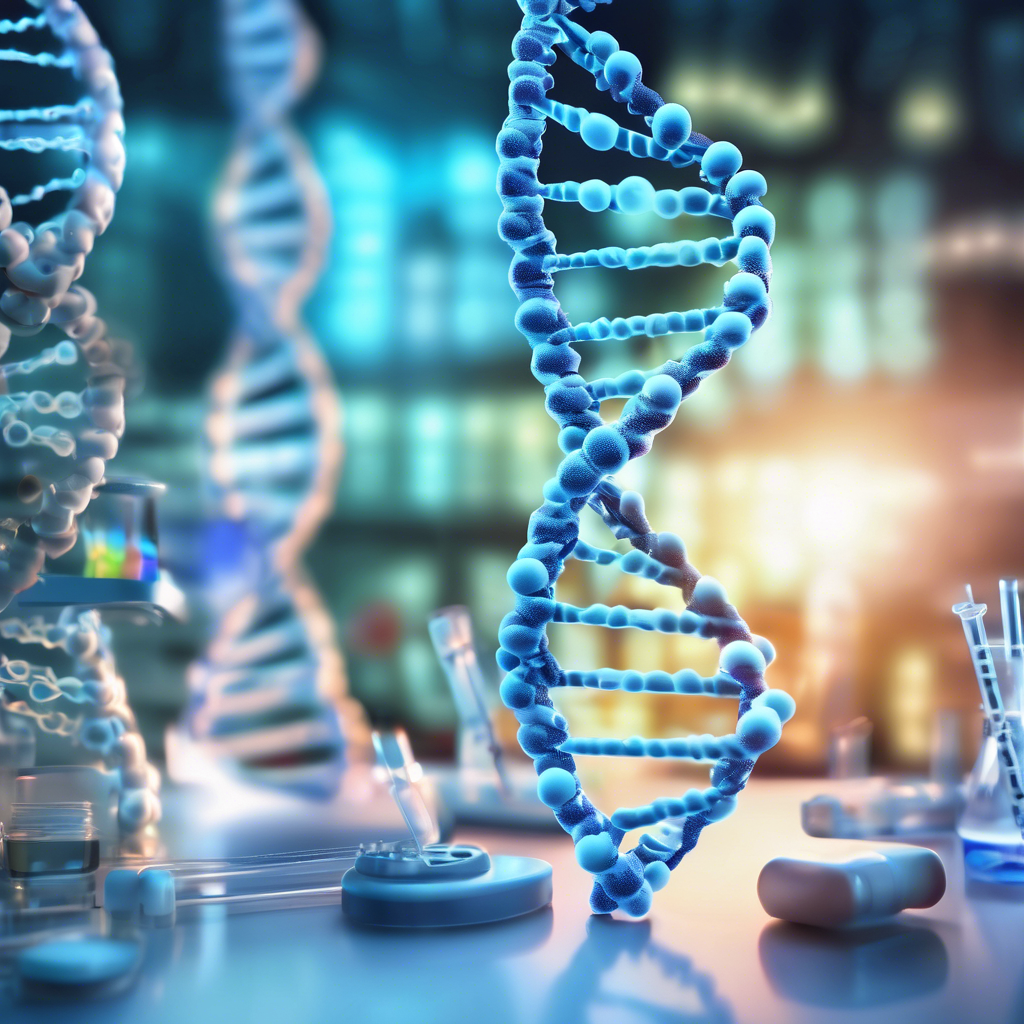
DNA methylation sits at the fascinating intersection of genetics and epigenetics—a biological mechanism that fine-tunes how our genes express themselves without altering the underlying DNA sequence. Essentially, DNA methylation involves attaching a small chemical tag, a methyl group, typically to cytosine bases within the DNA molecule. While this might sound like a microscopic tweak, its consequences echo loud and clear in cellular function. By regulating gene expression, DNA methylation controls which genes are turned 'on' or 'off,' akin to traffic lights directing cellular activity. This epigenetic modulation is crucial for normal development and maintaining the integrity of our genome. Interestingly, when this process goes awry, it can contribute significantly to the onset of cancer. Abnormal methylation patterns may silence vital tumor suppressor genes—guardians that typically prevent uncontrolled cell growth—or erroneously activate oncogenes, those genes that promote tumor formation. This delicate balance underscores the importance of DNA methylation, making it a key player in cancer biology.
One of the most exciting aspects of DNA methylation lies in its potential for early cancer detection. When it comes to battling cancer, timing is everything. Detecting cancer at an early stage drastically enhances treatment success and survival odds. What makes DNA methylation particularly promising is its remarkable stability and detectability across various biological specimens, such as blood, stool, and urine. This versatility opens doors for non-invasive screening methods—a significant leap from traditional, often uncomfortable biopsies or colonoscopies. For example, assays targeting methylation changes in genes like SEPT9 have become promising tools in colorectal cancer screening. SEPT9 gene methylation tests analyze a specific epigenetic signature in blood samples, offering a less invasive, patient-friendly alternative. This approach aligns with a broader shift toward precision medicine, where understanding molecular changes becomes the foundation for early intervention and improved healthcare outcomes.
Enter OncoPreventer, a groundbreaking service that epitomizes the fusion of cutting-edge genetic science, artificial intelligence, and preventive medicine. OncoPreventer takes the concept of DNA methylation analysis a step further by using it as part of a comprehensive personalized cancer risk assessment. By decoding an individual’s unique methylation patterns alongside other genetic markers, OncoPreventer crafts a detailed cancer risk profile tailored specifically to that person. But the innovation doesn’t stop at risk assessment. The platform leverages AI to translate genetic insights into actionable prevention strategies, empowering users with customized plans that might involve dietary tweaks, supplementation, lifestyle changes, and suggested medical check-ups designed to nip potential cancers in the bud. What’s more, the service offers at-home, non-invasive screening tools—removing barriers like clinic wait times and discomfort—democratizing access to advanced health monitoring. The dynamic nature of OncoPreventer’s continuous monitoring and updated recommendations means users receive ongoing support that evolves alongside their health journey, highlighting a proactive, rather than reactive, approach to cancer prevention.
OncoPreventer’s value goes beyond convenience and personalization—it taps into a powerful public health message: that approximately 80% of cancers may be preventable through timely detection and lifestyle interventions. Harnessing the synergy between sophisticated genetic analysis and artificial intelligence, this service empowers individuals to seize control over their health destinies. It’s a paradigm shift from waiting for symptoms or routine screenings to living a health-conscious lifestyle informed by one's genetic and epigenetic profile. In a world where precision health is gaining momentum, OncoPreventer stands out by offering a holistic prevention model that integrates data, technology, and personalized wellness insights. By making sophisticated cancer risk assessments accessible and actionable, it helps bridge the gap between scientific discovery and everyday health management—potentially steering people towards longer, healthier lives.
Ultimately, the integration of DNA methylation testing into personalized cancer prevention strategies represents a milestone in modern healthcare. Platforms like OncoPreventer highlight the promise of harnessing molecular biology, big data, and AI to go beyond the traditional reactive model of treatment. Instead of waiting until cancer manifests, these innovations enable proactive surveillance and targeted prevention, fostering a mindset where individuals can actively reduce their cancer risk. As science continues to unravel the complex epigenetic landscape, the hope is that such personalized tools will become commonplace, transforming how we approach not only cancer but myriad other conditions. Embracing these advances offers a pathway toward a future where healthcare is not just about fighting disease but anticipating it—and preventing it—before it starts.
#DNAMethylation #CancerPrevention #PersonalizedMedicine #OncoPreventer #Epigenetics #EarlyDetection #HealthInnovation
Leave a Reply